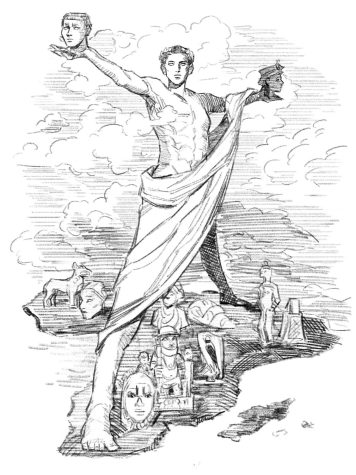New Jersey Gets a New Governor
December 22, 2017
Change is coming for New Jersey—or so suggests the gubernatorial election that took place this November 7th, which saw Democrat Phil Murphy sweep to victory over the Republican candidate, lieutenant governor Kim Guadagno.
Murphy can, in part, thank Chris Christie for his win: the sheer unpopularity of the current governor—who, in June, recorded a 15% approval rating—sunk the chances of Guadagno, who had served under Christie for seven years. The public widely criticized the latter for his role in the so-called “Bridgegate” scandal, as well as photos that surfaced of his family’s visit to a state beach he’d closed as part of a government shutdown—itself a revenge tactic at the state legislature’s refusal to pass his proposed budget. Citizens also lambasted Christie for his perceived neglect of the state during his ill-fated presidential run.
Phil Murphy’s rise marks a significant gain for local Democrats, who also control the state legislature. Additionally, the New Jersey governor appoints the lieutenant governor, attorney general, and several state judges and commission members, rendering him or her more powerful than any other state leader. Murphy’s win provided evidence of strong Democratic cohesion in the state: his campaign out-funded Guadagno’s three to one in the general elections and benefitted from the support of prominent Democrats such as former President Obama, Bill and Hillary Clinton, and Al Gore.
However, the switch in leadership has both Democrats and Republicans anxious for change. Navindu Ralapanawe ‘21 professes to be “very excited—the truth is that Christie was kind of a laughingstock, and although I don’t know much about Murphy, I think he’ll be a much better leader.”
Yet Murphy’s personal background contrasts starkly with the recent populist swing in American politics. A former Goldman Sachs executive, Murphy went on to work as the Democratic National Committee’s finance chair and poured more than a million dollars into New Jersey Democratic races. Under the Obama presidency, Murphy was given the ambassadorship to Germany, where he served through a controversy involving the release of confidential cables from him and other embassy staff, which had many German officials calling for his resignation. Moreover, during his 23-year tenure at Goldman Sachs, Murphy was accused of running a division that profited from investments in a shoe manufacturer “notorious for its horrific work conditions.” (Murphy’s campaign denied all connection to the investments).
Nevertheless, Murphy’s platform is markedly progressive. He has promised large tax increases for corporations and the wealthy, and has stated his intent to make undocumented immigrants eligible for state-issued ID cards and gradually increase the minimum wage to $15 an hour. Increased school funding and greater allocations for infrastructure are also on the new governor’s agenda.
Among those optimistic at these pledges is Molly Ramirez ‘20, who hopes that “now that the governor and the state legislature both belong to the same party, things can actually get done.” However, she expressed some reservations, bringing up the archetype of the politician who “comes into office with a bold vision and sweeping list of action items, but somehow doesn’t end up accomplishing much of anything at all. I hope our new governor won’t be like that, but it’s honestly too soon to tell.”
Yet at the moment, Phil Murphy seems set to steer the state onto a new course.


